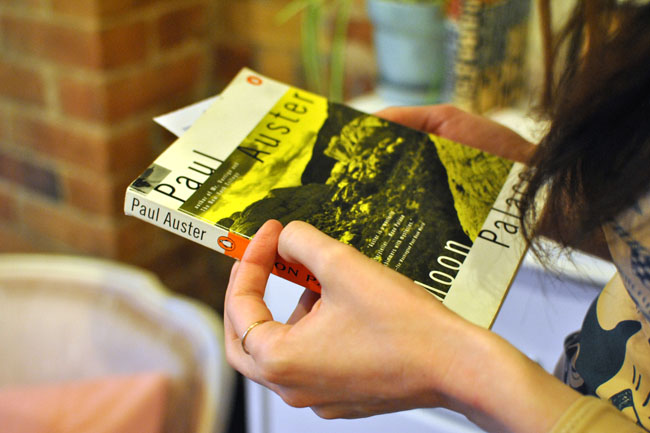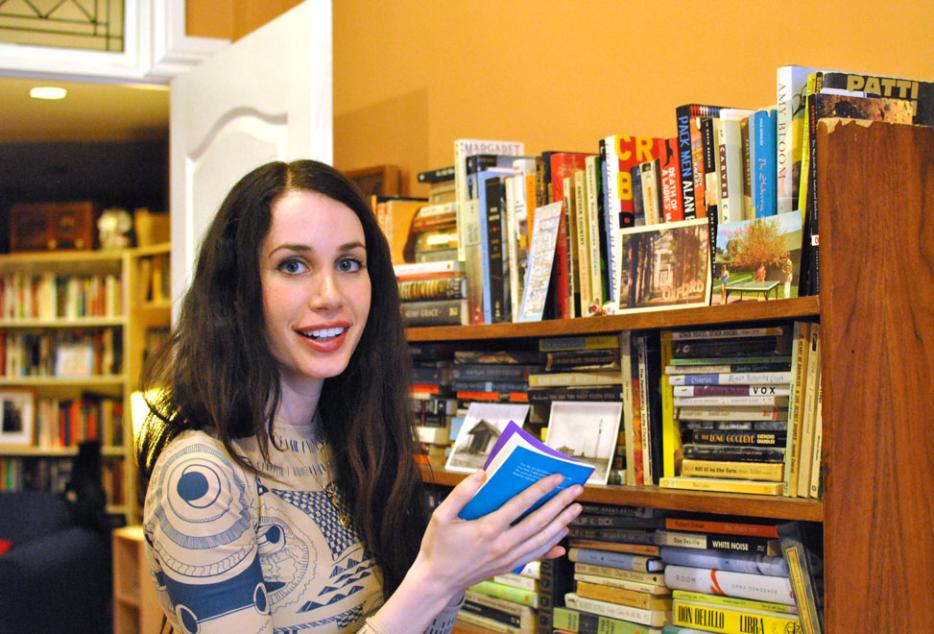Shelf Esteem is a weekly measure of the books on the shelves of writers, editors, and other word lovers, as told to Emily M. Keeler. This week’s shelf belongs to Lauren Kirshner, the author of the novel Where We all Go, and founder of Sister Writes, a writing program for marginalized women in Toronto’s West end. Her books are in her home in Toronto, which she shares with her husband and two cats.
When I moved in here, I had about 400 books and I just tried to move everything. It ended up being in garbage bags, and I was so eager to get everything unpacked that I didn’t shelve them in alphabetical order. After a while I got frustrated with not being able to find anything, I couldn’t lend people books. Finally, I put everything in a loosely alphabetical order. But I like lending books, or giving people books, and now it’s gotten messed up. But I’m not too particular about it.

I think sometimes that I’m going to go digital. But I just really like the way books smell. This old Graham Greene novel smells really good. Smell that, tell me what you get from that. I love that smell. What’s that company called, the fragrance one? They should try to get that smell. Maybe it’s best kept in the book, not for the body. It’s an amazing scent. You want to know another really interesting smell? The Chicago Manual of Style. Smell this. No other book has this smell, it’s a unique Chicago Manual smell. And it’s helpful. Some books don’t have any particular smell. You’re not reading for the smell at that point.
--
Shelf Esteem appears every Tuesday
Find Hazlitt on Facebook / Follow us on Twitter






